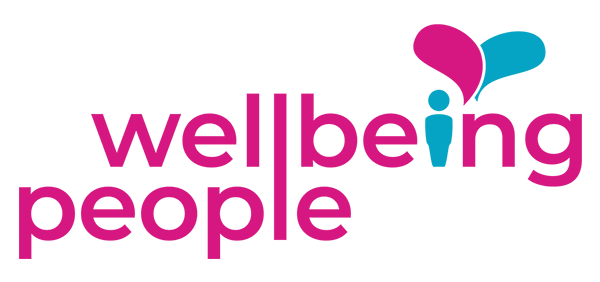Menopause is still such a taboo subject with a fair amount of negative stigma surrounding it. It is a time of life that people from differing biological sexes have not prepared for. People are supposed to just manage and carry on regardless of the physical, mental and emotional effects that this time of life delivers, leaving people going through the menopause at work in a disadvantaged place.
Menopause at work
Without a doubt, we are an ageing population. Therefore, with increased rates of people aged 50 and above in employment, more workers than ever before will experience the menopause at work during this time with related symptoms that could affect the quality of their work and significantly impact on their working life.
Legally, employers have a responsibility and duty of care to their employees. They must abide by relevant health & safety and employment law. Employees’ general wellbeing is about how they feel and function on an individual and social level, both at home and at work. Menopause can affect a person’s general sense of wellbeing and it is time for workplaces to recognise this.
It is essential too that employers are trans and non-binary inclusive in the support they offer. Menopausal symptoms can also occur if members of the trans and non-binary community are taking hormonal treatments. Hormone disruption can also cause menopausal symptoms such as sleeplessness, fatigue, lack of concentration, mood swings and hot flushes.
Interestingly, The Faculty of Occupational Medicine found that the majority of menopausal people were unwilling to disclose menopausal related health problems to their managers. Due to the negativity and stigma around menopause, employees can feel embarrassed believing that it undermines their professional image.
Support general health and wellbeing
Supporting general health can help mitigate some of the challenges of menopause. Discover Habits for Health our online employee wellbeing programme that focuses on nutrition, movement, mindset and lifestyle, which can help alleviate some symptoms of menopause.
8 ways that employers can support the menopause at work
There are very simple steps that employers can take to help smooth the path of this challenging stage of a person’s life. To attract and retain a diverse and inclusive workforce is to normalise hormonal and menopausal phases that employees experience. These should be freely talked about without any stigma or embarrassment. Ultimately, embedding menopause at work into your company wellbeing strategy will help to support longer working lives.
- 1Raise awareness. Begin with creating the right environment to openly talk about the menopause. Ensure the support is as far-reaching as possible, talk to employees to find out what they would like in terms of support and engage employees in group discussions. Make menopause an ok subject to talk. A great time for this would be to do something on World Menopause Day which is held every year on 18th October.
- 2Educational and informative workshops. Change organisation cultures by helping managers and staff understand the debilitating effects that the menopause can have. Remember that line managers don’t need to be medical experts, nor should they be. Giving them the tools and appropriate level of knowledge about menopause will help them to have supportive conversations without any awkwardness – doing this will make a big difference. Menopause workshops and webinars are also a proactive way for all employees to help reduce the stigma, raise awareness and normalise hormonal related issues.
- 3Review the working environment: Many menopausal people experience hot flushes which cannot be controlled. Working in a cool and well-ventilated environment will help reduce these symptoms. Mini desktop fans that can be plugged into a computer are a great solution and don’t affect other staff.
- 4Flexible working hours. Disturbed sleep is symptom of the menopause. Offering flexible working hours or shift changes may assist with managing extreme tiredness.
- 5Cold drinking water. Having access to cold drinking water is a positive for all staff. Drinking cold water is particularly soothing for menopausal symptoms too.
- 6Correct postural seating. Making sure that seating is comfortable and supportive will help with aches and pains.
- 7Uniforms. Provide uniforms made of natural fabrics with a looser fit as this will help with hot flushes and sensitive skin.
- 8Employee Assistance Programmes (EAP) Having a good EAP in place offers employees invaluable confidential support in times of need. It saves management time and can help to reduce sickness absence.
A little about menopause
The menopause is a naturally occurring stage of a woman’s life. It happens typically between the ages of 45 and 55, although it can occur to women in their 60s. Around 1 in 100 women under 40 go through the menopause prematurely. Menopause can also happen to people of differing genders, including trans men, who were assigned the female gender at birth, and non-binary people identifying as neither male nor female.
One of the hardest parts of the menopause is that there is no clear start or finish. There is no definitive timescale that people will experience the unpleasant effects that the menopause presents.

People going through the change will experience it differently with varying degrees of symptoms. Insomnia, hot flushes, low mood, headaches, sensitive skin, anxiety, erratic periods, poor concentration and lack of confidence are just some of the symptoms that women may experience.
In addition, trans men and non-binary people can experience dysphoria (a sense of unease) because of a mismatch between their biological sex and their gender identity. Menopause can act as a reminder of the reproductive system they were born with and the gender they don’t identify with. This sense of dissatisfaction and frustration can lead to depression and anxiety.
menopause at work, a final note
It is important to note that menopause is a temporary phase that will pass. Some will experience significant symptoms but there are many people that experience very few.
Menopause is a significant life transition that many women face while at the peak of their careers. Businesses that recognise this and take steps to support their employees will not only foster loyalty and retention but will also create a more inclusive, productive, and positive work environment.
By raising awareness, offering flexible work options, making simple workplace adjustments, and providing mental health support, businesses can ensure that employees going through menopause feel supported and empowered to continue thriving in their careers. Investing in the wellbeing of all employees leads to a healthier, more inclusive, and ultimately, more successful workplace.
Supporting menopause at work isn’t just good for women - it’s good for business.
Our Navigating Menopause Webinar & Workshop is great for team leaders and managers who want to understand more about menopause at work and how they can support colleagues. This session is also invaluable to your team members as it will help to not only raise awareness but to navigate the menopause with strength and resilience.
References and further reading
https://www.goodhousekeeping.com/uk/health/a35227597/lgbtq-menopause-experience/
https://thebms.org.uk/
https://menopauseintheworkplace.co.uk/articles/how-do-hormonal-changes-affect-the-trans-and-non-binary-community/
https://menopauseintheworkplace.co.uk/articles/menopause-and-work-its-important/
